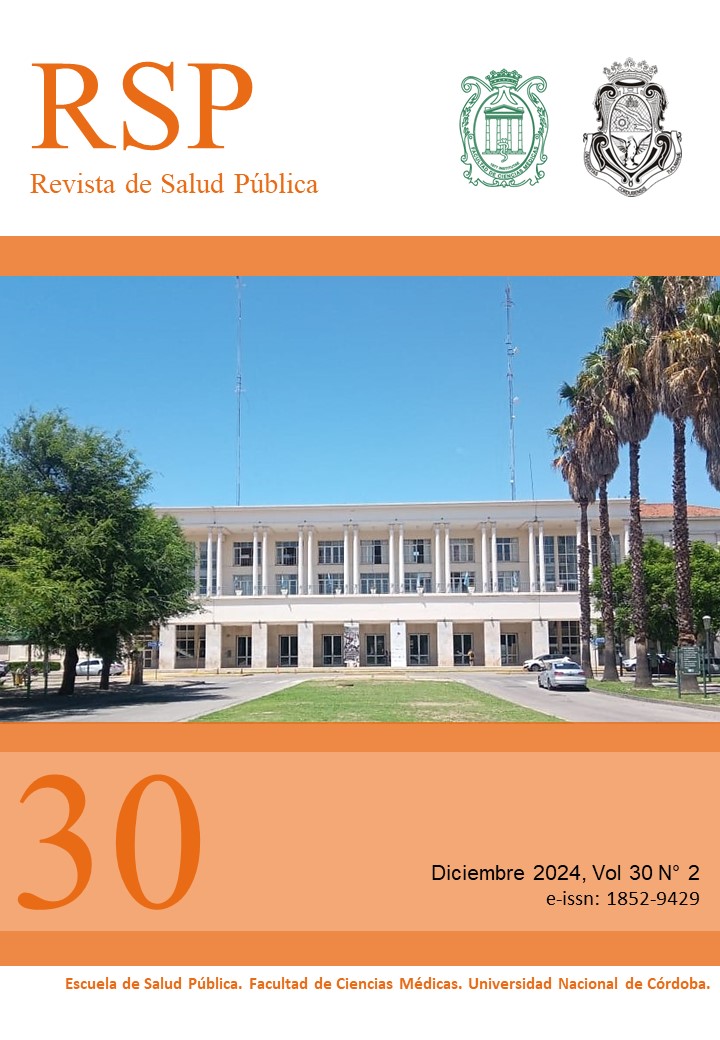Four Reasons to Prioritize Quality in Healthcare Management to Achieve Universal Coverage
DOI:
https://doi.org/10.31052/1853.1180.v30.n2.46468Keywords:
Quality of health care, Health management, Universal health coverageAbstract
Health organizations have management goals that influence how they plan and use their resources. These goals include quality, cost, quantity, delivery, and ethics. When managed in a comprehensive and balanced way, these goals contribute to the continuous improvement and overall success of organizations. However, this balance is not always achieved, especially if quality is not prioritized as the first organizational goal. This article highlights four reasons, supported by strategic, logical, ethical, and statistical arguments, that justify prioritizing quality. The first reason is ethics and equity, ensuring that all users receive high-quality medical care. The second reason is that prioritizing quality also contributes to achieving other competitive organizational goals. The third reason is that by prioritizing quality, positive health care outcomes are optimized, while the negative consequences of poor quality are avoided. The fourth reason highlights that health organizations are highly complex and have significant workloads; prioritizing quality ensures the efficient use of resources while maintaining high service levels despite complexity and demand. This article discusses four reasons to justify promoting quality as the first goal of health organizations, hoping to help decision-makers defend the prioritization of quality over other goals.
Downloads
References
World Health Organization. Handbook for national quality policy and strategy: a practical approach for developing policy and strategy to improve quality of care [Internet]. WHO; 2018. [Acceso el 3 de abril de 2023]. Disponible en: https://apps.who.int/iris/bitstream/handle/10665/272357/9789241565561-eng.pdf?sequence=1&isAllowed=y
Leape LL. Making healthcare safe: the story of the patient safety movement [Internet]. Springer International Publishing; 2021. [Acceso el 4 de abril de 2023]. Disponible en: https://link.springer.com/book/10.1007/978-3-030-71123-8
World Health Organization. Global patient safety action plan 2021–2030: towards eliminating avoidable harm in health care [Internet]. WHO; 2021. [Acceso el 3 de abril de 2023]. Disponible en: https://www.who.int/teams/integrated-health-services/patient-safety/policy/global-patient-safety-action-plan
Imai, Masaaki. Gemba Kaizen: A Commonsense, Low-Cost Approach to Management. McGraw Hill Professional. 1997. p. 109. ISBN 978-0-07-136816-2.
Deming, WE. Out of the crisis. Cambridge, MA: Massachusetts Institute of Technology. 1986.
Kruk ME, Gage AD, Joseph NT, Danaei G, García-Saisó S, Salomon JA. Mortality due to low-quality health systems in the universal health coverage era: a systematic analysis of amenable deaths in 137 countries. Lancet. 2018 Nov 17;392(10160):2203-2212.
National Academies of Sciences, Engineering, and Medicine. Crossing the global quality chasm: improving health care worldwide [Internet]. Washington (DC): National Academies Press (US); 2018. [Acceso el 4 de abril de 2023]. Disponible en: https://www.ncbi.nlm.nih.gov/books/NBK535653/
Ferede Gebremedhin, A, Dawson A, Hayen A. Evaluations of effective coverage of maternal and child health services: A systematic review. Health Policy Plan. 2022;37(7): 895-914.
Allen Kachalia and Kris Vanhaecht. Quality and Patient Safety Improvement Is Never Finished. 2024. NEJM Catal Innov Care Deliv 2024;5(9):0.
Hibbert PD, Stewart S, Wiles LK, Braithwaite J, Runciman WB, Thomas MJW. Improving patient safety governance and systems through learning from successes and failures: qualitative surveys and interviews with international experts. Int J Qual Health Care. 2023 Nov 17;35(4):0.
Downloads
Published
Issue
Section
License
Copyright (c) 2024 Escuela de Salud Pública y Ambiente. Facultad de Ciencias Médicas. Universidad Nacional de Córdoba

This work is licensed under a Creative Commons Attribution-NonCommercial 4.0 International License.
Authors who publish with this journal agree to the following terms:
- Authors retain copyright and grant the journal right of first publication with the work simultaneously licensed under a Creative Commons Attribution License which allows the work to be copied, distributed, exhibited and interpreted as long as it is not done for commercial purposes.
- Authors are able to enter into separate, additional contractual arrangements for the non-exclusive distribution of the journal's published version of the work (e.g., post it to an institutional repository or publish it in a book), with an acknowledgement of its initial publication in this journal.
- Authors are permitted and encouraged to post their work online (e.g., in institutional repositories or on their website) after the publication process. (See The Effect of Open Access). (See The Effect of Open Access).







